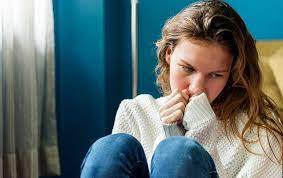In this blog post, we will discuss the best treatments for OCD and anxiety. Are you also suffering from OCD or anxiety? If so, you know how debilitating these conditions can be. The good news is that there are many treatments available that can help you manage your symptoms and live a normal life. We will also provide tips on how to find the right treatment for you.
Contents
- 1 What Are OCD And Anxiety?
- 2 What Are The Best Treatments For OCD And Anxiety?
- 2.1 Cognitive Behavioral Therapy
- 2.2 Exposure And Response Prevention Therapy
- 2.3 Acceptance And Commitment Therapy
- 2.4 Psychodynamic Therapy
- 2.5 Deep Brain Stimulation
- 2.6 Transcranial Magnetic Stimulation
- 2.7 Imaginal Exposure Therapy
- 2.8 Medication
- 2.9 Support Group
- 2.10 Meditation And Exercises
- 2.11 Mindfulness Activity
- 2.12 Lifestyle Changes
- 3 How To Choose The Best Treatments For OCD And Anxiety?
- 4 Can OCD And Anxiety Be Cured Fully?
- 5 Conclusion
What Are OCD And Anxiety?
OCD stands for Obsessive Compulsive Disorder and is characterized by intrusive, persistent thoughts (obsessions), and repetitive behaviors (compulsions). OCD usually causes the sufferer to become preoccupied with certain objects or actions, to the point where it interferes with their daily life.
Anxiety is a feeling of fear, worry, and uneasiness in response to an upcoming event or situation. It affects both our physical and mental health. Symptoms of anxiety can include muscle tension, restlessness, fatigue, difficulty concentrating, irritability, racing thoughts, and more.
What Are The Best Treatments For OCD And Anxiety?

Here we have listed some of the most effective treatments for OCD and anxiety.
Cognitive Behavioral Therapy
CBT is a type of psychotherapy that focuses on changing thoughts and behaviors. It has been proven to be one of the most effective treatments for OCD and anxiety. In CBT, you will work with your therapist to identify negative thought patterns and create strategies to counter them.
Exposure And Response Prevention Therapy
ERP Therapy helps people with OCD by gradually exposing them to their fears and teaching them how to better manage their reactions. The goal of ERP is to help patients cope with their anxiety without engaging in compulsive behaviors.
Acceptance And Commitment Therapy
ACT is a type of therapy that focuses on teaching people to accept their thoughts and feelings without judgment. This type of therapy helps to reframe the way we see our anxiety and learn how to cope with it in healthier ways.
Psychodynamic Therapy
Psychodynamic therapy is a type of therapy that focuses on exploring the unconscious and hidden aspects of an individual. It helps to uncover unresolved feelings and explore how they may be related to current symptoms of OCD or anxiety.
Deep Brain Stimulation
(DBS) is a type of surgical procedure used to treat certain neurological conditions. It involves implanting electrodes directly into the brain and connecting them to an electrical generator outside of the body. The generator then sends small electrical pulses to specific areas of the brain, which can help reduce or even eliminate symptoms associated with these conditions.
Transcranial Magnetic Stimulation
(TMS) is a therapy that uses magnetic fields to stimulate areas of the brain. It is used to treat psychiatric disorders, such as depression, anxiety, obsessive-compulsive disorder (OCD), and post-traumatic stress disorder (PTSD). TMS has been studied in clinical trials and has been found to be effective in treating symptoms of depression, anxiety, and OCD.
Imaginal Exposure Therapy
Imaginal Exposure Therapy involves gradually exposing people to the thoughts and memories that cause them distress. The goal is to help the patient learn how to manage their fear and anxiety healthily.
Medication
Medications such as selective serotonin reuptake inhibitors (SSRIs) are commonly used in treating OCD and anxiety. SSRIs work by blocking certain molecules in the brain which can help reduce symptoms. Other medications may also be prescribed depending on the individual’s needs.
Support Group
Support groups and online resources can be very helpful in managing OCD and anxiety. They provide a safe place to talk about feelings and experiences, find support, and learn more about different treatments. In addition, they may also help individuals connect with other people who are going through similar issues.
Meditation And Exercises
Meditation, breathing exercises, and other relaxation techniques can be useful in managing symptoms of OCD and anxiety. They help to reduce stress and calm the mind which can promote better mental health. Exercise is also important for physical and mental well-being, as it releases endorphins that help with relaxation and mood.
Mindfulness Activity
Mindfulness activities such as writing a journal, and listening to music can help to improve mental health. These activities help to ground oneself in the present moment and avoid ruminating on worry or fear. It can also provide an opportunity for self-reflection and insight into one’s thoughts, feelings, and behaviors.
These practices involve focusing on the present moment, helping to reduce rumination and intrusive thoughts.
Lifestyle Changes
Making lifestyle changes such as reducing alcohol or caffeine intake, avoiding triggers, getting enough sleep, and eating a healthy diet can all help to manage OCD and anxiety symptoms. It is important to note that these changes may not always work for everyone, so it is best to find what works best for each individual.
How To Choose The Best Treatments For OCD And Anxiety?

It is up to the patient’s condition and preferences as to which treatment is best suited to them. The type of treatment will depend on the severity and frequency of symptoms, as well as individual preferences.
When it comes to choosing treatments for OCD and anxiety, there are several things to consider. It is important to talk to your doctor or mental health professional about the best options for you. You may also want to research different types of therapy, medication, lifestyle changes, and other treatments that may help reduce your symptoms.
Can OCD And Anxiety Be Cured Fully?
The answer to this question is that the severity and duration of a person’s OCD or anxiety depend on many factors, including the individual’s diagnosis, how long they have had the disorder, and their response to treatment. While there is no one-size-fits-all solution to completely curing OCD or anxiety, treatments can help people successfully manage their symptoms rather than fully cure the condition.
Conclusion
These are just some of the treatments that may be beneficial for OCD and anxiety disorders. When it comes to treating OCD and anxiety, there are many options available. The best treatment will depend on the individual’s condition and personal preferences. It is important to talk to a mental health professional to determine the best course of action for you. With proper education, support, and the right treatment plan, it is possible to manage these disorders successfully.
Take care, and don’t forget that you are not alone! OCD is a mental health disorder characterized by obsessions and compulsions. If you have any queries regarding OCD treatment, ERP therapy experienced therapists at OCDMantra can help: Book a trial OCD therapy session


